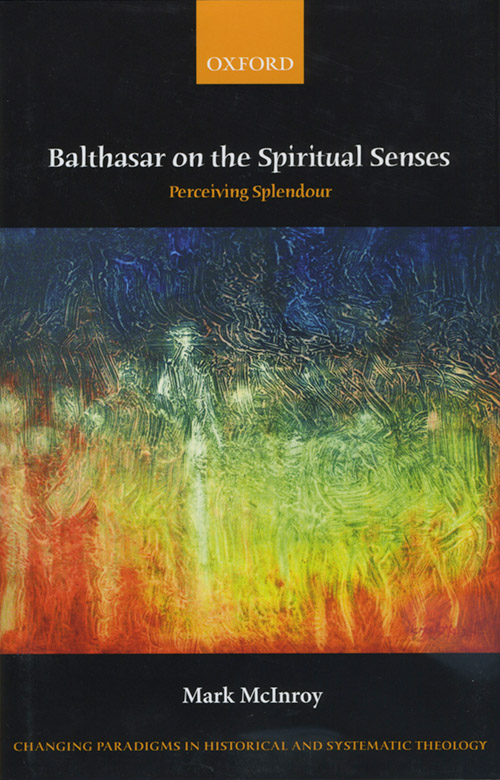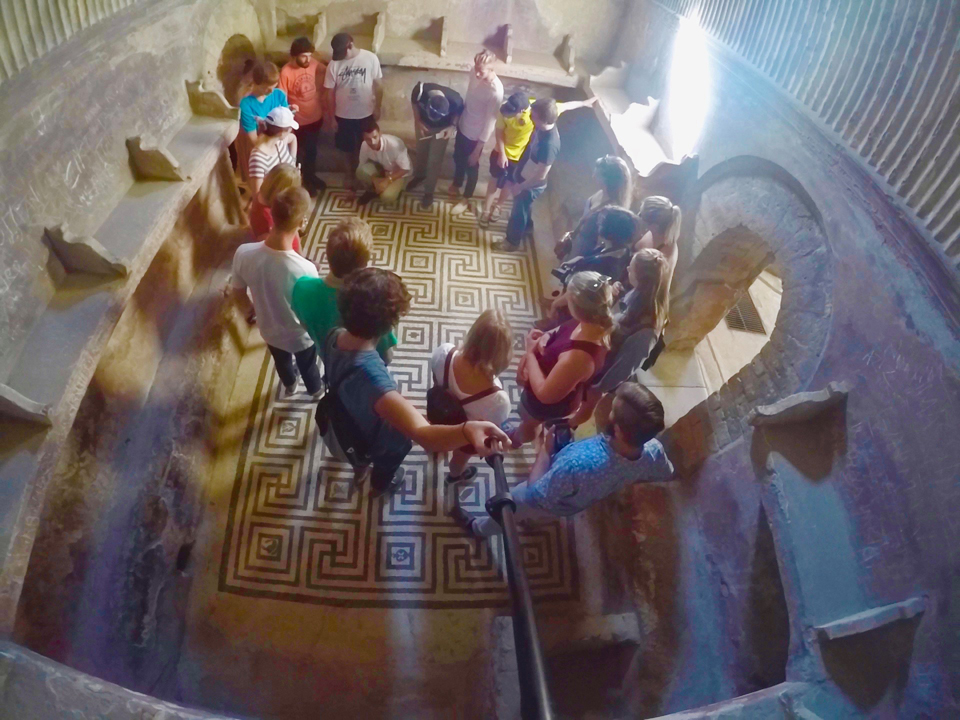 After spending a decade studying Swiss theologian Hans Urs von Balthasar and sorting through hundreds of writings, theology professor Mark McInroy published his book Balthasar on the Spiritual Senses: Perceiving Splendour with Oxford University Press in 2014. The book is one of the reasons McInroy is receiving an internationally prestigious award for scholarship in theology next month in Germany.
After spending a decade studying Swiss theologian Hans Urs von Balthasar and sorting through hundreds of writings, theology professor Mark McInroy published his book Balthasar on the Spiritual Senses: Perceiving Splendour with Oxford University Press in 2014. The book is one of the reasons McInroy is receiving an internationally prestigious award for scholarship in theology next month in Germany.
Balthasar’s work focused on God’s role when we experience beauty in the world. His theology was influential to both popes John Paul II and Benedict XVI.
“The idea that beauty needs to be reclaimed as an understanding of God is something both popes thought was an urgent task for the contemporary world,” McInroy said.
Balthasar was a prolific writer, authoring close to 100 books and 500 articles. In the 1960s he wrote a seven-volume “theological aesthetics,” which was translated into English in the 1980s as The Glory of the Lord. McInroy said the years since have been a time of “critical engagement” for scholars exploring Balthasar’s works.
Balthasar believed God is beautiful, and beauty is manifested in the world, whether it is through works of great art, a natural landscape or something witnessed in others. Through experiencing beauty, Balthasar said we experience a reflection of God in the creation.
Although Balthasar is widely known for this emphasis on aesthetics, McInroy’s book digs deeper than have other scholars into the way Balthasar understands the human perception of God’s beauty. A feature of Balthasar’s work that has gone largely unnoticed is his use of the “spiritual senses,” as they are called. According to McInroy, Balthasar claims that humans have a set of corporeal senses as well as a set of “spiritual senses.” The latter is what are used to perceive God.
When McInroy teaches Theology 101, a required class for every St. Thomas undergraduate, he incorporates Balthasar’s ideas into his lessons because perceiving beauty is something tangible for students to understand.
“When we are in an aesthetic encounter, we are amidst that rapture, ecstasy, or whatever you want to talk about being transported beyond yourself as it happens in those profound experiences of beauty; one is getting something of a hint of what a relationship with God is like,” McInroy said.
 This experience can be uncomfortable, however.
This experience can be uncomfortable, however.
“These experiences of beauty are transformative,” McInroy said. “They do push one out of one’s comfort zone. There’s something beguiling, something deeply mysterious that happens there because you are being rewarded. You’re fulfilled at the same moment you are encountering something beyond yourself.”
By experiencing beauty, we experience something of what God is like, McInroy tells students. McInroy also teaches a higher-level theology class that spends a semester exploring aesthetics, beauty and the divine.
“I hope that students leave with the understanding that beauty isn’t just a kind of passing phenomenon or something that is an ornamental, pleasant embellishment. In fact, beauty exposes us to the depths of being, the very rich fundamentals of reality,” McInroy said. “So we’re not in contact with something that we can take or leave, and it’s not ultimately dispensable. In fact, beauty speaks to us. It not only resonates with us on a deep level; it describes one of the most fundamental features of the world, which in turn reflects on the source of that world, the creator.”
For his scholarship, McInroy has been named a recipient of the prestigious Lautenschlaeger Award for Theological Promise. He is one of 10 recipients from around the world and will receive it in May from the University of Heidelberg in Germany.
“It’s a tremendous honor,” he said. “It means a great deal to me.”
Read more from CAS Spotlight.




